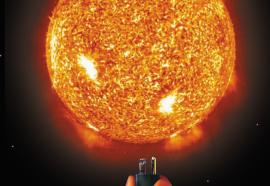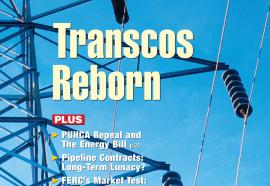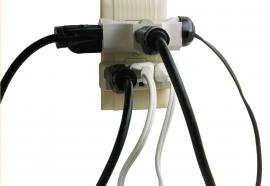The Cost of Katrina
Debate continues on how to safeguard America's energy infrastructure.
In the wake of Hurricane Katrina, the central question: Could any of this have been avoided? Many experts believe that the new authority given to FERC to enforce mandatory reliability standards, as per the Energy Policy Act of 2005, will bring greater transparency to the process of protecting critical infrastructure.










